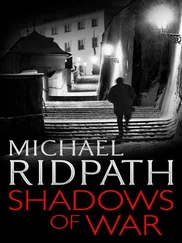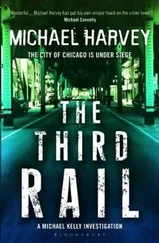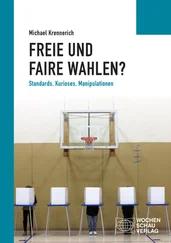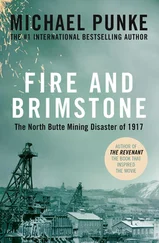Michael Ridpath - Free To Trade
Здесь есть возможность читать онлайн «Michael Ridpath - Free To Trade» весь текст электронной книги совершенно бесплатно (целиком полную версию без сокращений). В некоторых случаях можно слушать аудио, скачать через торрент в формате fb2 и присутствует краткое содержание. Жанр: Триллер, на английском языке. Описание произведения, (предисловие) а так же отзывы посетителей доступны на портале библиотеки ЛибКат.
- Название:Free To Trade
- Автор:
- Жанр:
- Год:неизвестен
- ISBN:нет данных
- Рейтинг книги:3 / 5. Голосов: 1
-
Избранное:Добавить в избранное
- Отзывы:
-
Ваша оценка:
- 60
- 1
- 2
- 3
- 4
- 5
Free To Trade: краткое содержание, описание и аннотация
Предлагаем к чтению аннотацию, описание, краткое содержание или предисловие (зависит от того, что написал сам автор книги «Free To Trade»). Если вы не нашли необходимую информацию о книге — напишите в комментариях, мы постараемся отыскать её.
Free To Trade — читать онлайн бесплатно полную книгу (весь текст) целиком
Ниже представлен текст книги, разбитый по страницам. Система сохранения места последней прочитанной страницы, позволяет с удобством читать онлайн бесплатно книгу «Free To Trade», без необходимости каждый раз заново искать на чём Вы остановились. Поставьте закладку, и сможете в любой момент перейти на страницу, на которой закончили чтение.
Интервал:
Закладка:
I thought about it. He was probably right. I sighed and thanked him for his trouble.
'Not at all. A pleasure to help. And have a pint of bitter for me when you get back.'
I assured him I would and left, thinking how lucky I had been to come across such a helpful New York cop. His Irish colleague's scowl followed me all the way out of the police station.
I walked the two blocks to Shoffman's apartment building. It was in one of those frontier neighbourhoods, where the more adventurous young urban professionals made forays into the run-down districts of Harlem. Neat brownstone buildings, built towards the end of the nineteenth century and renovated towards the end of the twentieth, rubbed shoulders with disused warehouses and builder's merchants. A Korean fruit-and-vegetable store stood on the street corner, spick and span, ready to sell its wares to returning office workers. At this time of the morning the streets were nearly empty. An old black man shuffled along the sidewalk, muttering to himself.
It is impossible for an Englishman to understand the real workings of a neighbourhood such as this. Brought up on a diet of TV cop shows and lurid news stories, it is all too easy to see New York as a battleground between white professionals and a black underclass. Shoffman lived right in the middle of the battle lines. The reality of the situation is probably infinitely more complicated than this, but, as an Englishman dressed in a suit, walking those streets on the outskirts of the notorious Harlem, I found it easy to believe that Shoffman could have become a casualty of this war.
The lobby of his apartment building was well furnished, and there was a doorman sitting behind a desk, guarding the passage to the lifts. I asked him about Shoffman, giving him the old-friend-from-England routine.
Yes, he remembered Mr Shoffman. Yes, he had been on duty on the evening of April nineteenth. No, he had not seen Mr Shoffman come home, neither had the doorman who relieved him at midnight. Yes, he would have remembered, he had been looking out for him to give him a parcel. No, the parcel was nothing special, just some books from a book club. No, he could not show me the apartment, it had a new owner.
I left defeated, hailed a cab, and went back to the hotel.
Back in my room I flopped on to my bed, stared at the ceiling and thought.
It looked as though I had drawn a blank on the answer to my first question. I only had a day left in New York. I was sure the policeman was right. My chances of finding out what really happened to Shoffman were very small. But I was still convinced that his disappearance so soon after his phone call to Honshu Bank was not a coincidence. Someone had found out that he had discovered Tremont Capital was a fraud, and he was now dead.
That still left the second question. How had Waigel put together the Tremont Capital deal? Who had he been dealing with? Where had the money raised by the private placement been paid?
There must have been some paperwork associated with the transaction. Hamilton would soon be looking for traces of it in Curacao. But there must also have been some at Bloomfield Weiss. The librarian in London had been adamant that none of it was in any central filing system. Of course it might have all been thrown away. But on the other hand the shell company still existed, it was still paying interest. No, it was quite possible that Waigel might have some of the records concerning the deal in his own private files. How could I get to his filing system?
I called Lloyd Harbin.
'Hallo. This is Paul Murray. I was just calling to thank you for showing me around yesterday.' I tried to keep the insincerity out of my voice.
'Oh sure, think nothing of it,' Lloyd said in a get-off-the-phone-quick-I've-got-something-better-to-do voice.
'I wonder if you could give me Tommy Masterson's home number?' I asked.
'I'm afraid Tommy has been terminated. He no longer works here.'
'None the less, I would be very grateful if you could help me. You see, I lent him my pen, and he didn't get a chance to return it. I have owned it for several years and it means a lot to me.'
'I am sorry, Paul. I just can't give out information about former employees.'
I should have known the sentimental approach wouldn't work with Lloyd Harbin. I would have to speak to him in his own language. 'Lloyd, listen carefully. De Jong & Co. is soon going to start a buying programme of junk bonds. It will total two hundred million dollars' (a lie but who cared?). 'Now, we can either buy them from Bloomfield Weiss or we can buy them from Harrison Brothers. The choice is yours.'
It worked. 'Now, hold on, don't do anything rash. I'll just get it for you.' He was back in less than half a minute. '342-6607.'
'Thank you. It will be a pleasure to do business with you,' I lied, and rang off.
I caught Tommy at home and asked him if he would mind meeting me for lunch. We agreed on an Italian restaurant, Cafe Alfredo, near where he lived in Greenwich Village.
Tommy without a job seemed much the same as Tommy with a job. The same laid-back air, the same amiability.
'I was sorry to see you let go yesterday,' I said, using the standard euphemism for 'getting fired'.
'Thank you,' said Tommy. 'It was a bit of a surprise.'
'I was amazed at the way they did it. Is that how it normally works? You get hauled off to some office somewhere and don't even get a chance to go back to your desk.'
'That's the way it works,' said Tommy, 'although usually you get a little more warning of what is going to happen.'
'Why did he do it?' I asked.
'He doesn't like me,' Tommy said. '"My attitude did not fit in with the Bloomfield Weiss culture." And, "I was undermining his authority." I don't think they like too much independent thought at Bloomfield Weiss. They don't like people who call a rip-off a rip-off instead of a "unique investment opportunity". Still, without me they will sell less bonds and make less money, so that is something to be grateful for.'
'You must be angry,' I said.
'Oh, I'll be all right. This has probably been a good thing. It will force me to go and find somewhere better to work, somewhere that employs human beings. I may even go back to California and let the Bad Apple rot.'
For all the brave face he was putting on it, Tommy could not suppress the bitterness in his voice. Good, I thought.
'I wonder if I could ask you for some advice,' I said.
'Sure.'
'My firm is the proud owner of one of those "unique investment opportunities" you were talking about. In fact it's so unique, I am pretty sure it's illegal. I can't do anything about it until I have some hard evidence.'
'What was the transaction?' Tommy asked.
'It was a private placement done eighteen months ago called Tremont Capital. Dick Waigel structured the deal.'
'Never heard of it. I'm afraid I can't give you any advice on that.'
'I don't need any advice on the deal itself,' I said. 'But I do need advice on how to gain access to Waigel's files.'
I looked at Tommy closely, hoping I had not gone too far.
He looked back. 'I can't do that,' he said. 'What if they found out I helped you?'
'They can hardly fire you,' I pointed out.
'True,' Tommy smiled. 'But if they did catch me, their lawyers would have me for breakfast.'
'I'm sorry, Tommy,' I said. 'I had no right to ask you. Please just forget we ever had this conversation.'
There was silence for a moment. Then Tommy relaxed again and smiled. 'Hell, why not? I don't owe them anything and it sounds like they owe you a lot. I'll help.'
'Great!'
'Waigel runs a department of five or six people. They all work in one room, but he has had his own office built. It takes up half the space, and has curtains for greater privacy.'
Читать дальшеИнтервал:
Закладка:
Похожие книги на «Free To Trade»
Представляем Вашему вниманию похожие книги на «Free To Trade» списком для выбора. Мы отобрали схожую по названию и смыслу литературу в надежде предоставить читателям больше вариантов отыскать новые, интересные, ещё непрочитанные произведения.
Обсуждение, отзывы о книге «Free To Trade» и просто собственные мнения читателей. Оставьте ваши комментарии, напишите, что Вы думаете о произведении, его смысле или главных героях. Укажите что конкретно понравилось, а что нет, и почему Вы так считаете.












